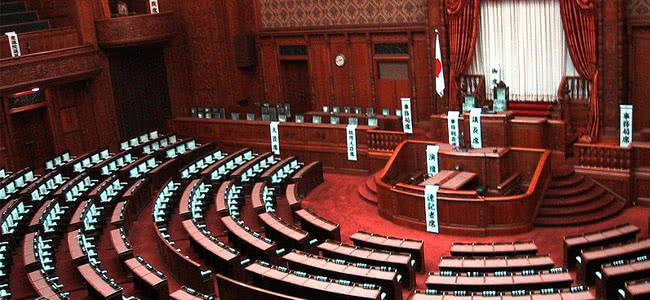If you thought America was hardline when it came to music piracy, after last months news that the US High Court refused to reduce a student’s $US 675,000 fine for illegally downloading 30 songs, then think again.
According to a report from Music Week, Japan have taken extreme measures to tackle music piracy by revising its laws to include penalties of two year jail terms and fines of up to 2 million yen (approx $AU 25,000) for individuals convicted of illegal downloading.
Effective October 1, the amended laws are a drastic revision to copyright laws. Under previous legislation, individuals could only be tried under civil law, but the new anti-piracy laws mean that individuals are charged with the same severe criminal penalties as those who illegally upload. In Japan the unauthorised uploading of material can currently be punished with up to ten years imprisonment and damages of up to 10 million yen (approx $AU 125,000).
The changes have implemented in response to data from the Recording Industry Association of Japan (RIAJ), the country’s equivalent of ARIA, that have indicated figures of illegal downloading are nearly ten times the amount of legal downloads.
Considering the difficulty of tracing some peer-to-peer software and download sites, the RIAJ are concerned that the already staggering figures could be larger. A 2010 study showing an approximate 4.36 billion files obtained illegally versus the 440 million that were paid for.
The RIAJ have also applauded the new laws, after the bill was passed through Japanese Government with little to no opposition, with the music trade group’s Chairman, Naoki Kitagawa stating, “this revision will reduce the spread of copyright infringement activities on the internet.”
Kitagawa has a vested interest in the increase in punishment for violators of copyright laws as he is also the CEO of Sony Music Entertainment Japan. He added that he hoped the amended laws would help create “a sound internet society.”
Opponents of the revised legislation however, are concerned that the new legal definitions are too broad and could lead to unnecessary prosecutions. Under the new laws, individuals can be prosecuted over a single download. Detractors criticised that internet users often found it difficult to determine the difference between a legal and illegal download.
Computer World notes that the Japan Federation of Bar Associations, one of the nation’s pre-eminent legal companies, says that the 2009 adoption of treating downloads as a civil matter was not allowed enough time to be judged effectively.
“Treating personal activities with criminal punishments must be done very cautiously,” said a statement issued from the group, “and the property damage caused by individual illegal downloads by private individuals is highly insignificant.”
Meanwhile, Yoko Mori, an Upper House member of the Japanese Diet and one of the few who opposed the bill, was quoted in the Japan Times saying, “We shouldn’t risk making the general public — including youths — the subject of criminal investigations.”

































